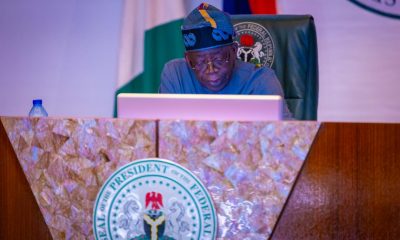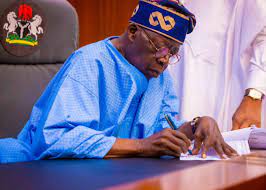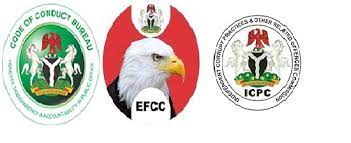Inflation rate has continued to rise in Nigeria from 1999 to 2023 with minimal control or recovery.
The rates, however, fluctuates either higher or lower under the different Presidents.
The Year-On-Year inflation rate for the past 24 years are as follows;
🇳🇬YoY Overall Inflation rate
July 1999: 3.98%
July 2003: 12.92%
July 2007: 4.83%
July 2011: 9.40%
July 2015: 9.22%
July 2019: 11.08%
July 2023: 24.08%
Inflation rate was lowest in the administration of former President Olusegun Obasanjo at 3.98% in July 1999; though rose to 12.92% in July 2003.
READ ALSO: Blinken supports Tinubu to reinstate Bazoum
The inflation rate dropped again to 4.83% in July 2007 in the administration of late President Umaru Musa Yar’Adua; rose to 9.40% in July 2011 in the administration of former President Goodluck Jonathan, declined to 9,22% in 2015, rose to 11.08% in July 2019 in the administration of former President Muhammadu Buhari, and rose to an all time high of 24.08% in July 2023 in the administration of President Bola Tinubu.
Prices have gone astronomically high in Nigeria since President Bola removed petrol subsidy by fiat without necessary economic measures to forestall sharp rise in the cost of petrol.
Citizens have been going through unprecedented hardship in the country, barely struggling for survival.
The current report of the National Bureau of Statistics (NBS) does not support any hope of encouraging investors into Nigeria because the purchasing power of Nigerians has been weakened. Investors would need guaranteed returns on investment before ever deciding on venturing into the Nigerian economy as presently structured.

 Health & Fitness3 days ago
Health & Fitness3 days ago
 Featured7 days ago
Featured7 days ago
 Education1 week ago
Education1 week ago
 Aviation5 days ago
Aviation5 days ago
 Business1 week ago
Business1 week ago
 Business7 days ago
Business7 days ago
 Crime1 week ago
Crime1 week ago
 Aviation4 days ago
Aviation4 days ago








